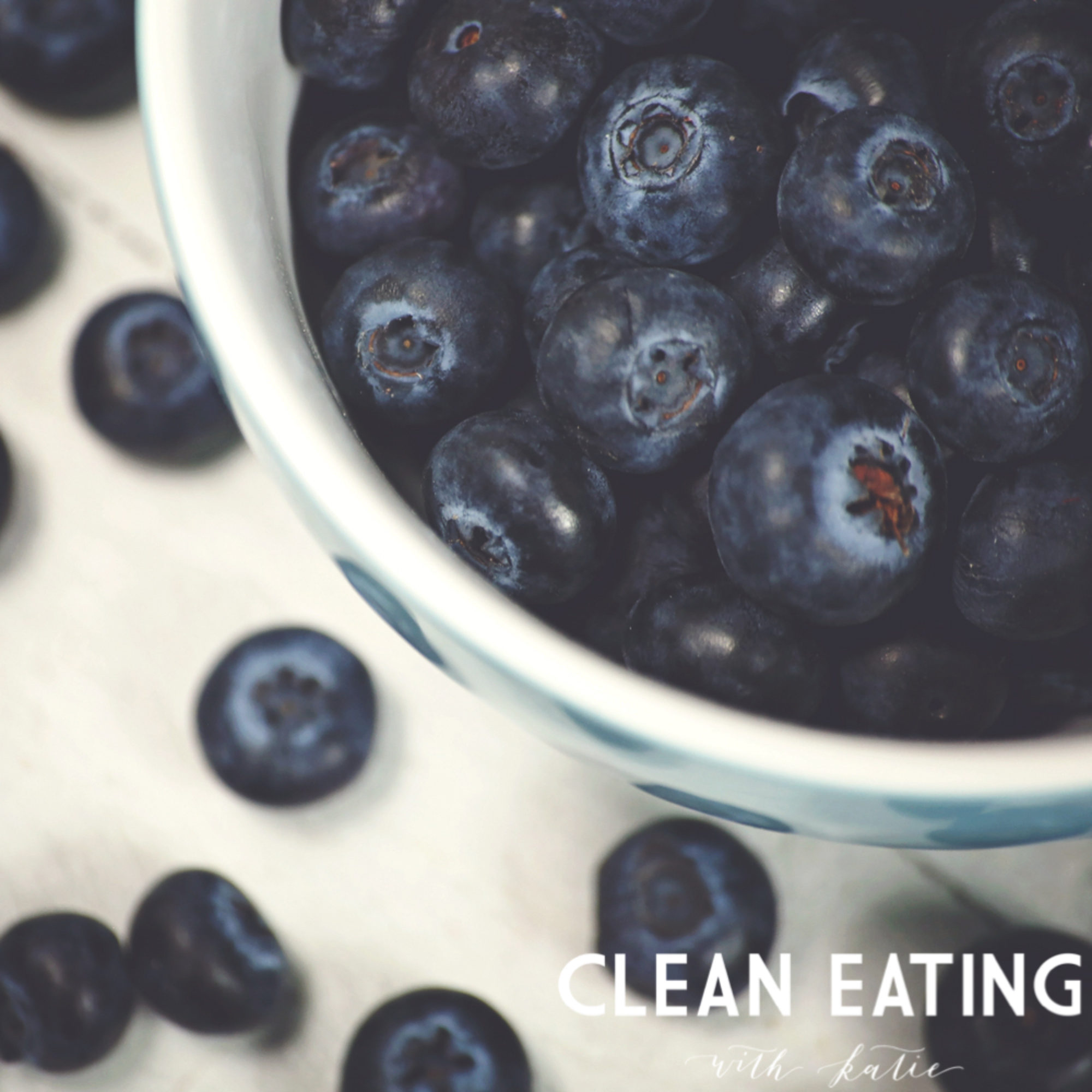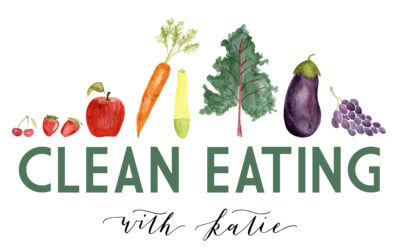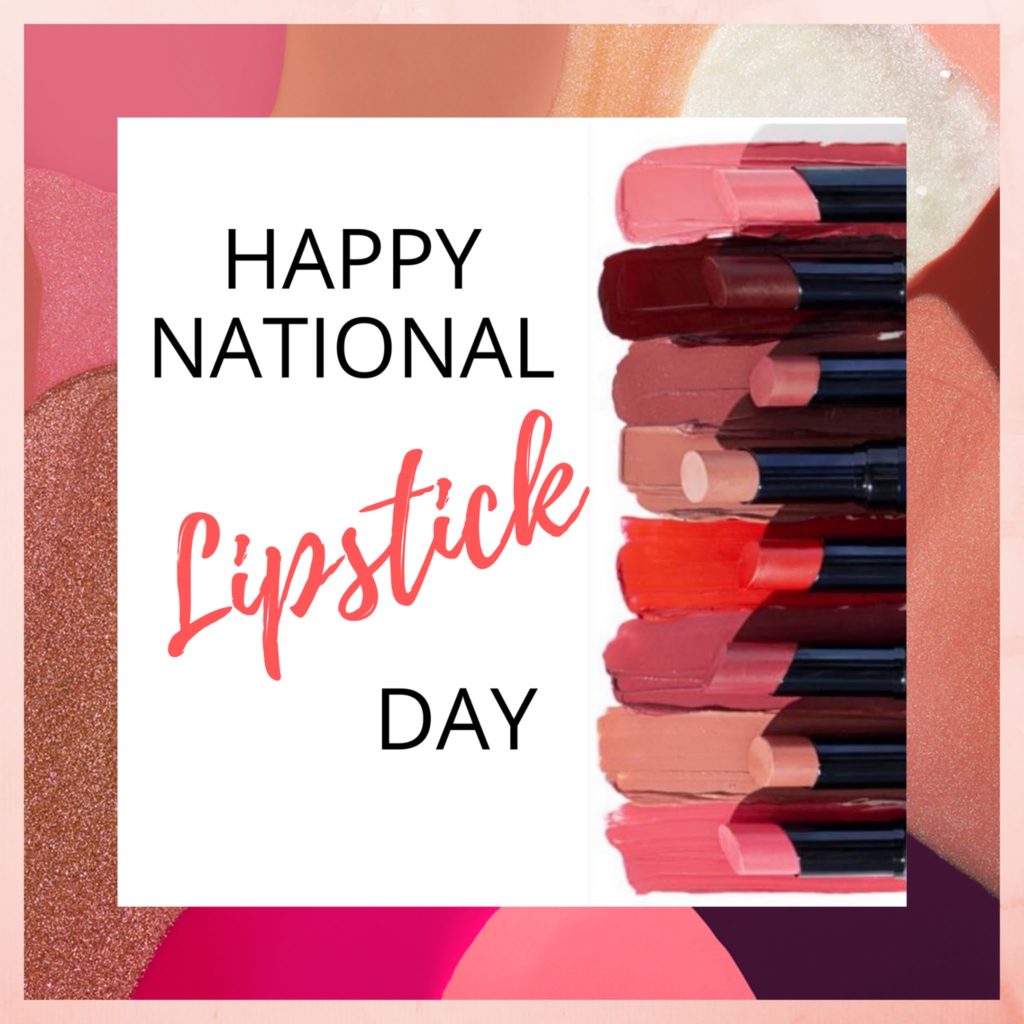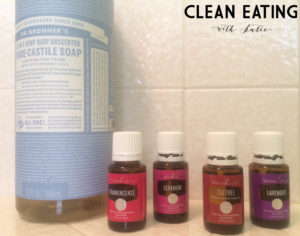☀️ Summer is here and we’re outside more and using sunscreen more and on more of our bodies. But how do you know your sunscreen is safe? Does the label say dermatologist recommended? Did you find it at Whole Foods? Unfortunately those alone aren’t enough.
The Environmental Working Group recommends a mineral sunscreen that provides a physical barrier between you and the sun. But sometimes those even have junk in them.
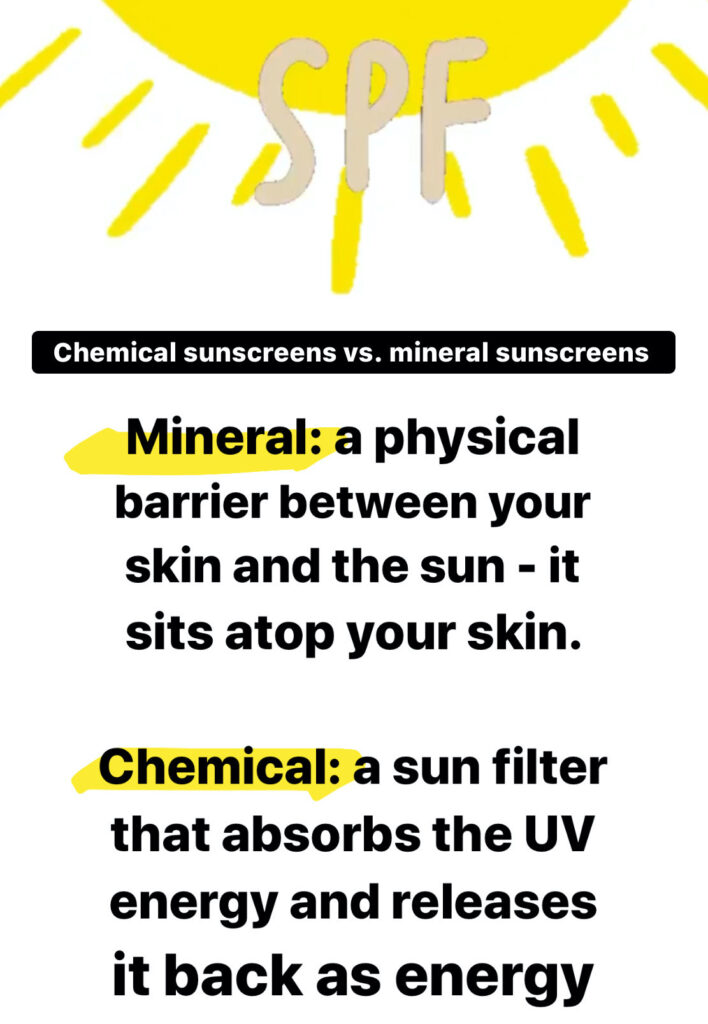
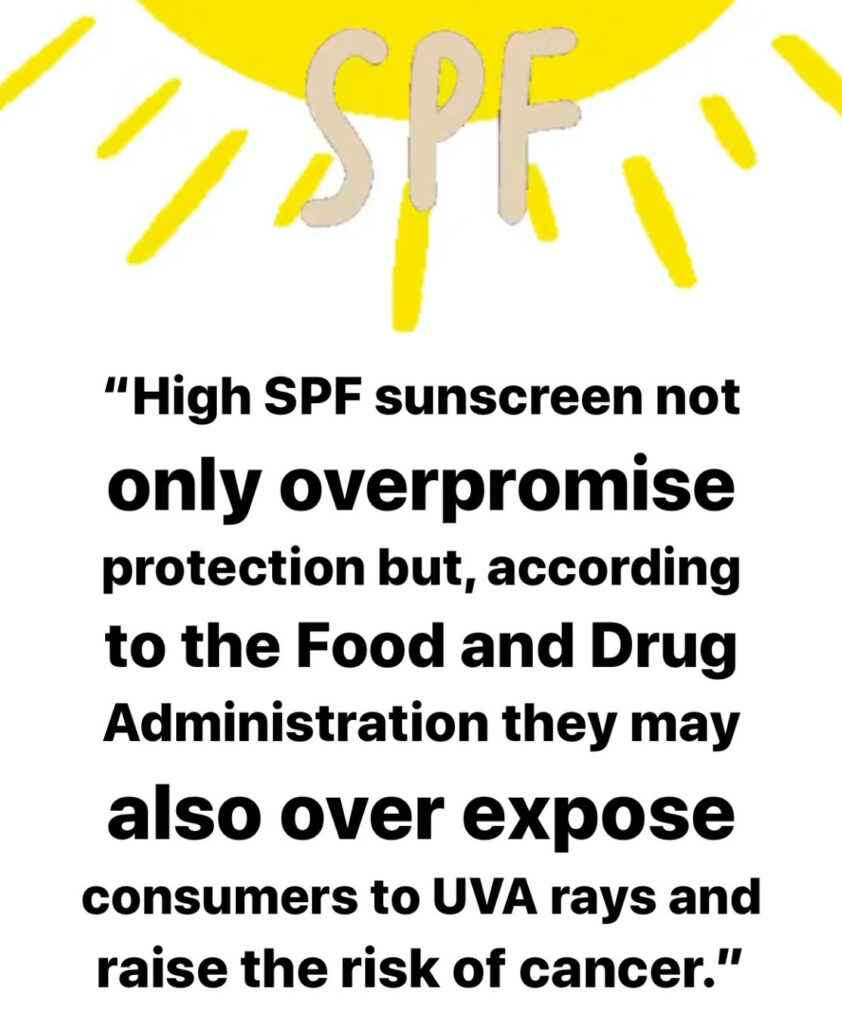
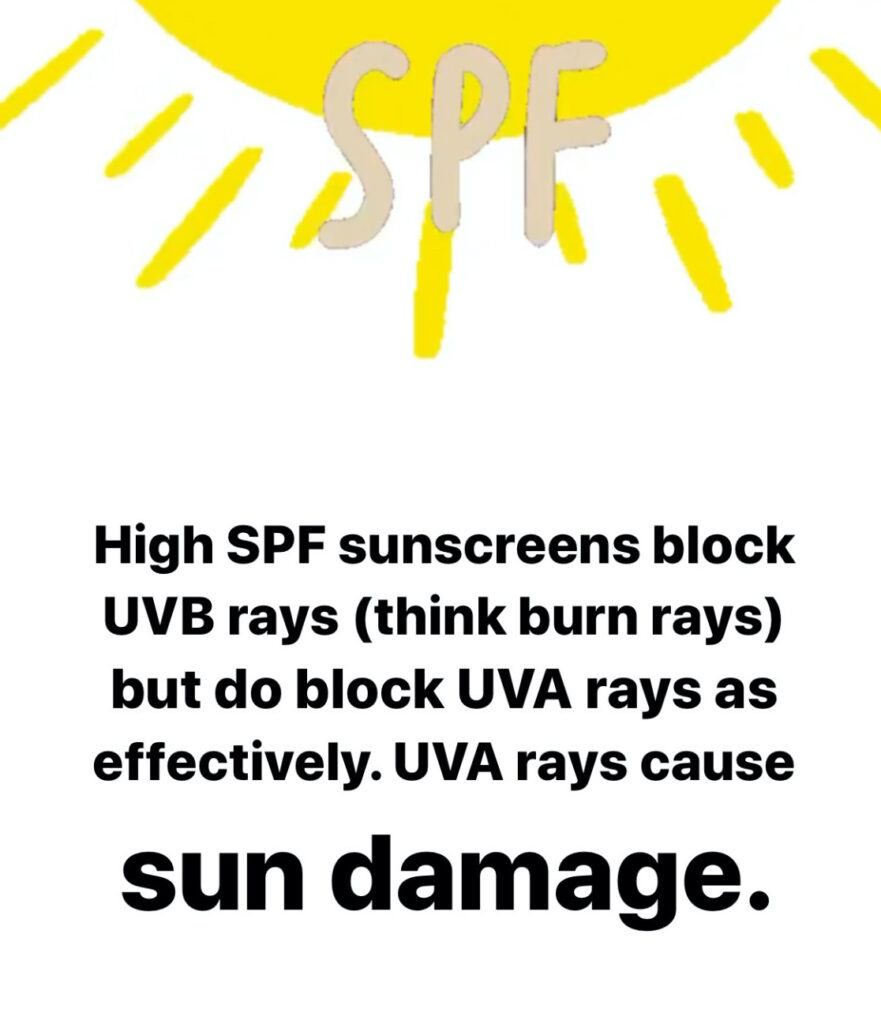
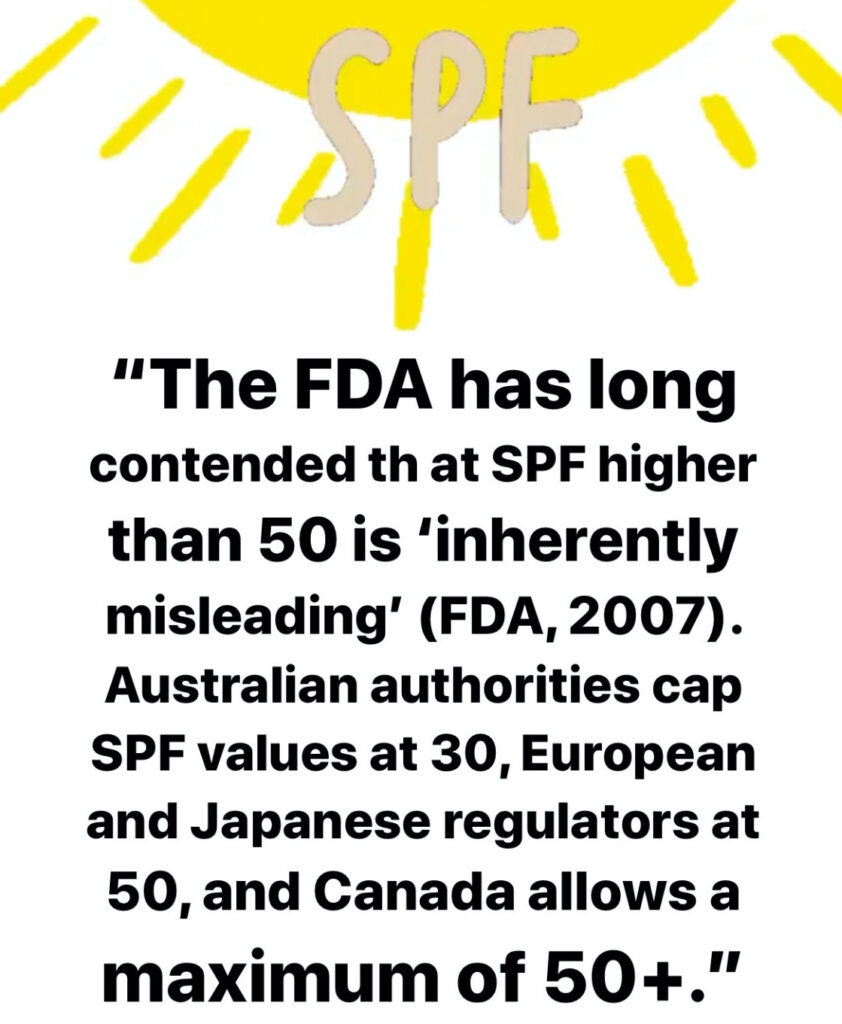
Have you used this Sunscreen from Neutrogena?
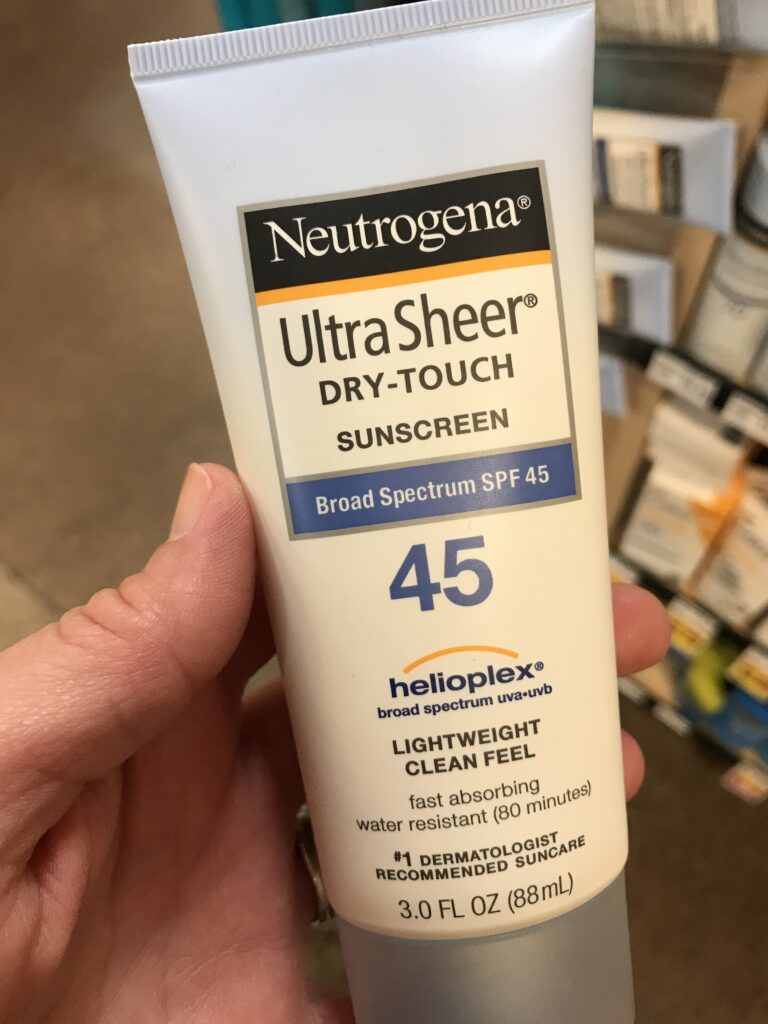
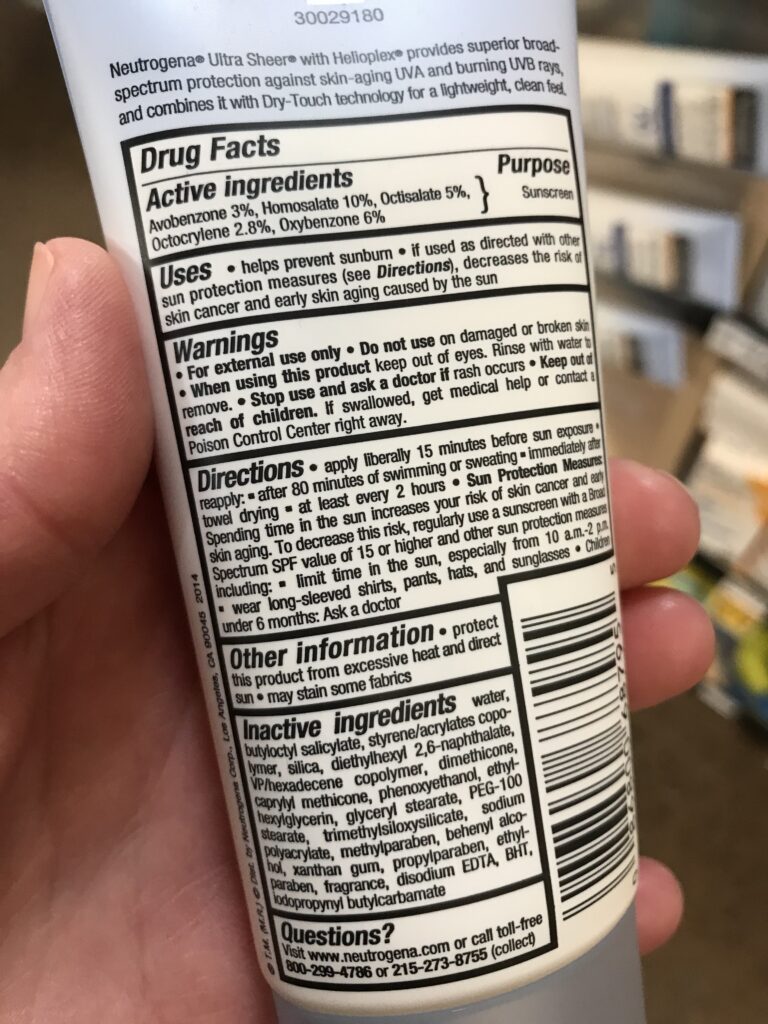
NO THANK YOU:
AVOBENZONE – chemical sunscreen; not reef safe; concerns of damage to the DNA with exposure to UVA light
OCTOCRYLENE – chemical sunscreen; not reef safe
PEG-100 STEARATE – known to be contaminated with carcinogens
DISODIUM EDTA – linked to organ toxicity
FRAGRANCE – a blanket term for many ingredients that do not have to be disclosed because it is proprietary
Have you used this Sunscreen from Aveeno?
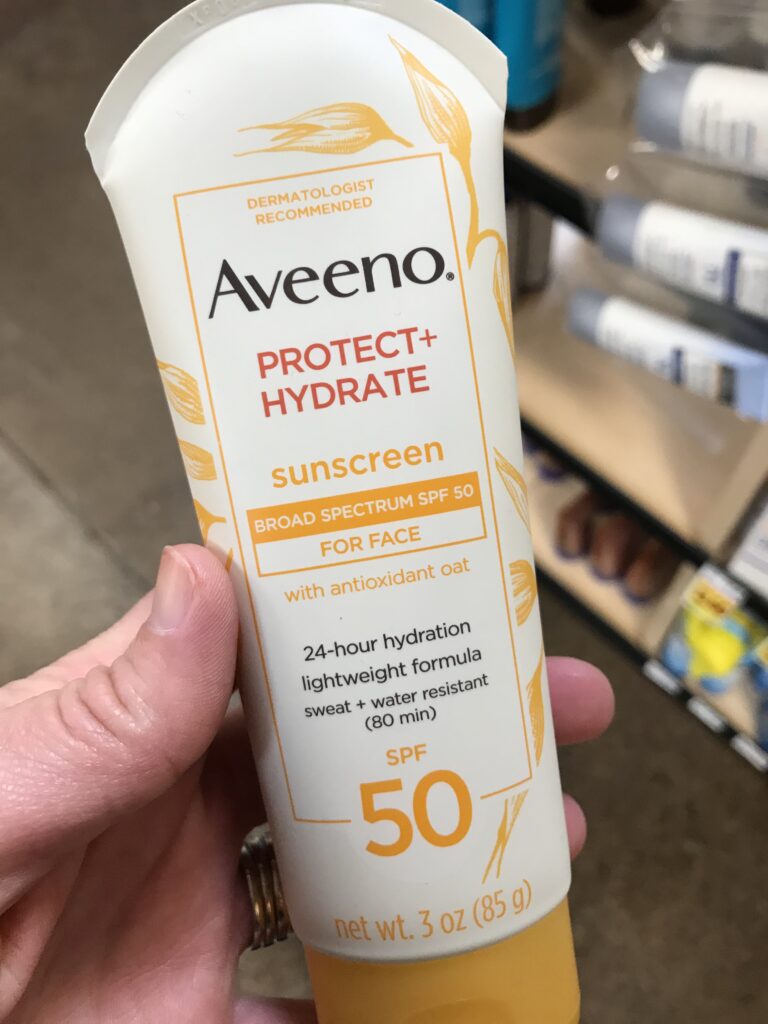
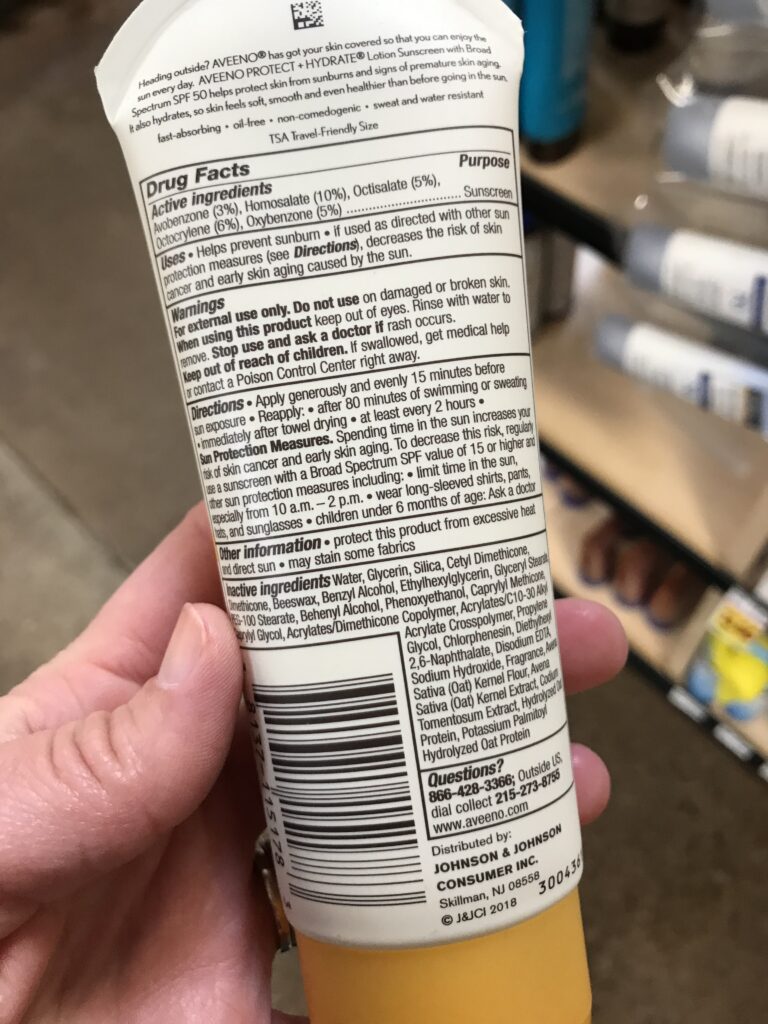
NO THANK YOU:
AVOBENZONE, OCTOCRYLENE, FRAGRANCE, PEG-100 STEARATE, and DISODIUM EDTA for the same reasons listed above.
OXYBENZONE – linked to reproductive hormone disruption like degraded sperm quality and endometriosis
Have you tried the baby line from Neutrogena?
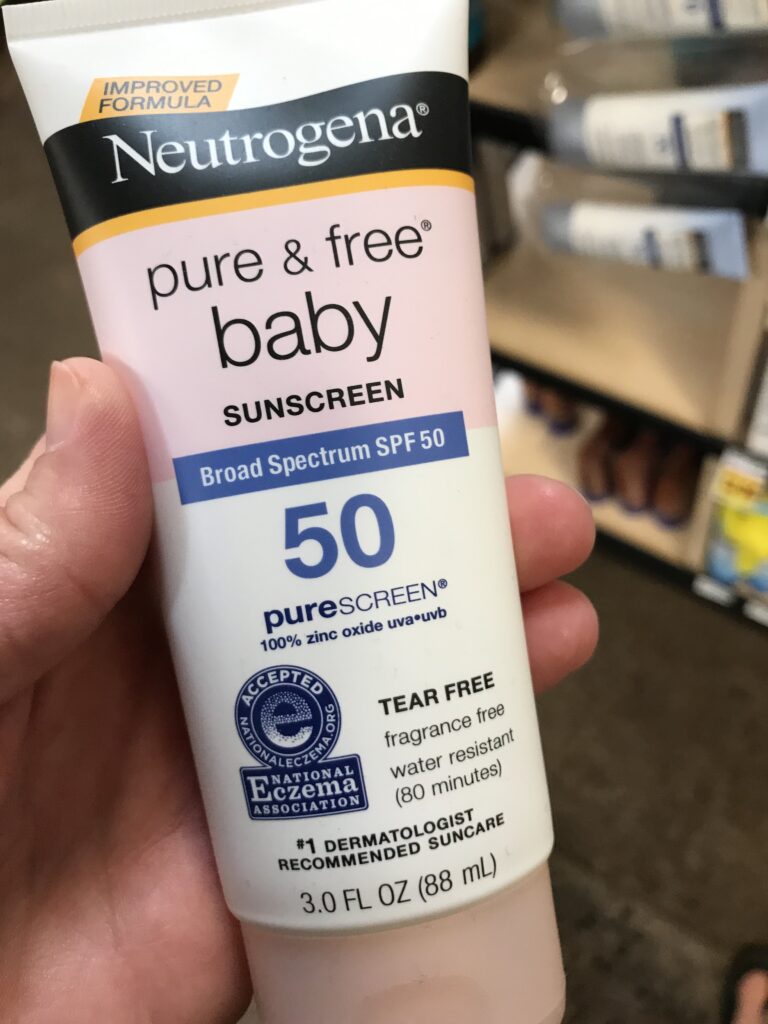
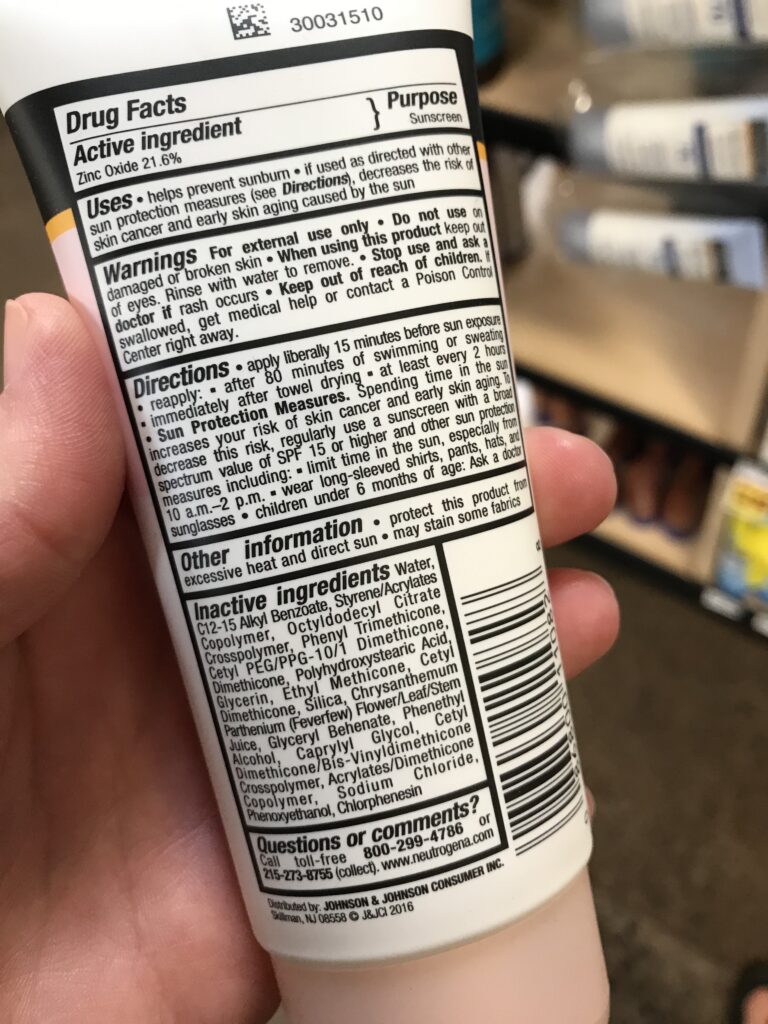
This labeling is a good example of Green Washing. It uses words like “pure”, “eczema association accepted”, and “#1 dermatologist recommended”. It sounds good and it is certainly better – it is a zinc based sunscreen (mineral sunscreen). This is a recent reformulation. Here is what the EWG used to rate this sunscreen as:
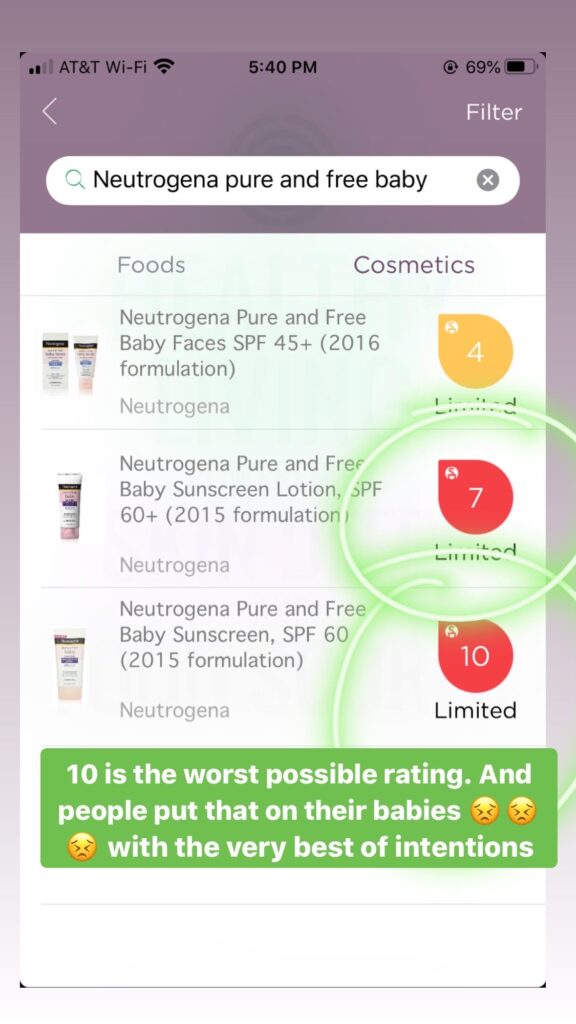
This sunscreen from Alba Botanicals must be better, right?
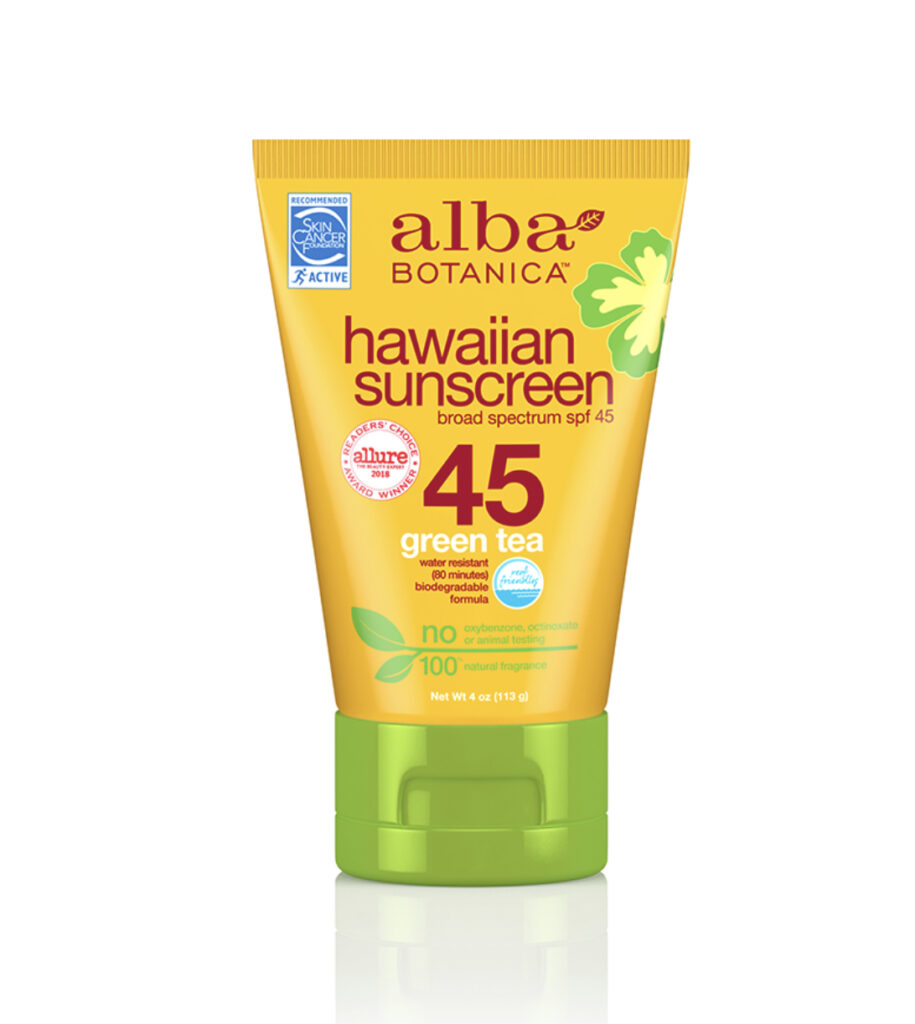
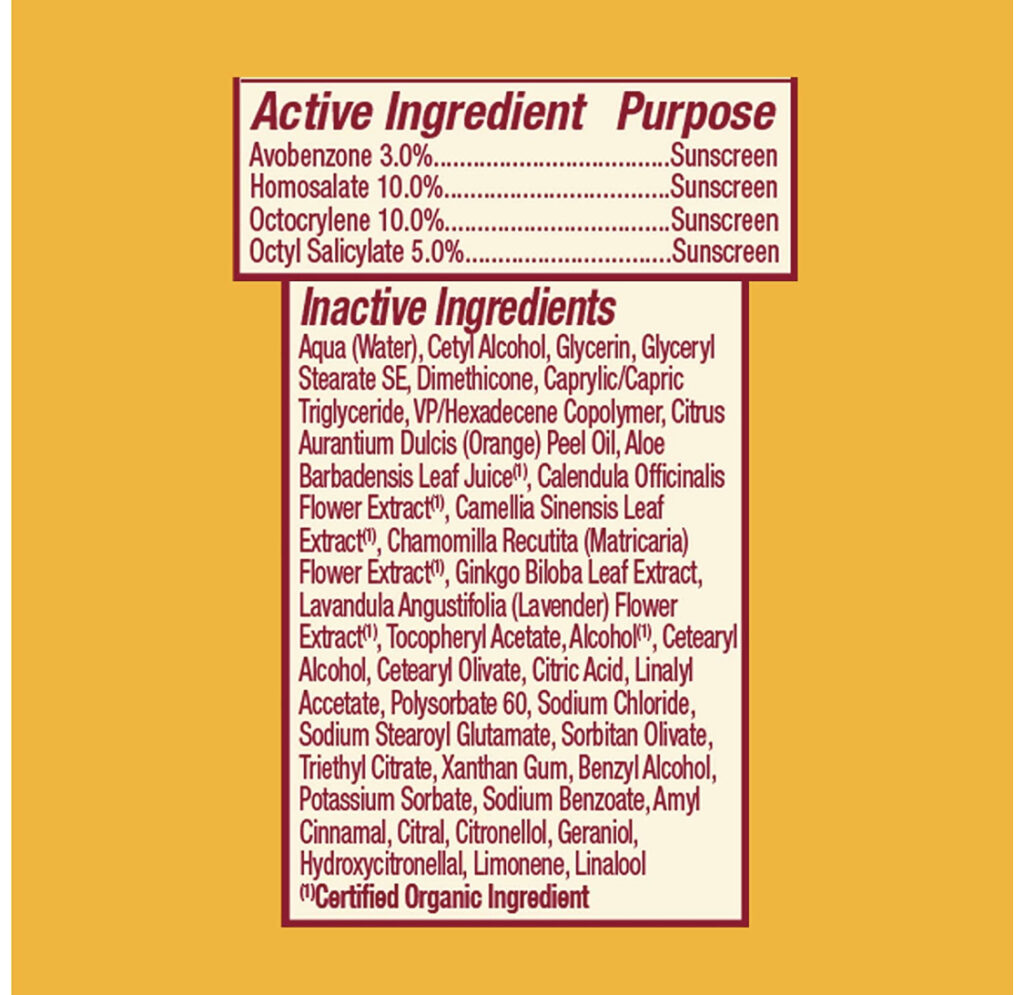
NO THANK YOU:
AVOBENZONE and OCTOCRYLENE for the same reasons listed above.
HOMOSALATE – possible endocrine disruptor; linked to organ toxicity; sunlight breaks down this chemical into toxic byproducts.
CITRUS PEEL OIL – sensitizes the skin to UV rays (which is why I do not recommend citrus essential oils applied topically to skin that will be getting sun exposure).
**All information about ingredients obtained from the EWG’s app Healthy Living.
I hope that learning this doesn’t make you feel fearful. My intention is to empower you with knowledge, because once you know better, you can make the empowered decision do better. Luckily, you too can use the Healthy Living app to find a sunscreen that is safe for you and safe for the planet.
What’s your go-to sunscreen?
